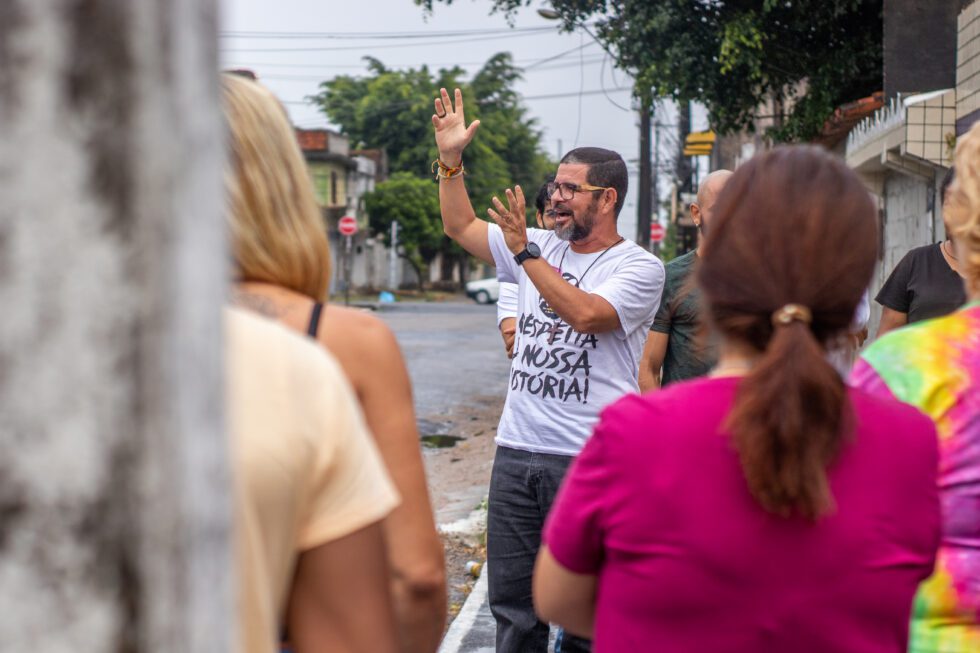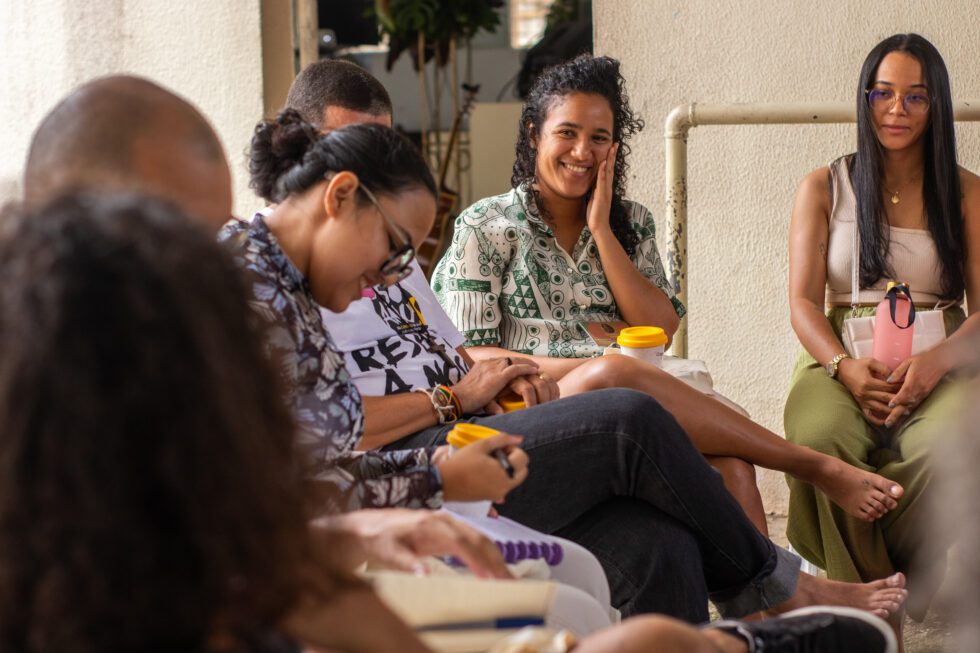
“Incalculable devastation.” This is the summary of Pastor Wellington Santos, from the Pinheiro Baptist Church, describing the environmental crime caused by the Braskem mining company in Maceió, the capital of Alagoas state. Last week, the city’s Civil Defence issued an alert because of the risk of collapse of mine no. 18, located in the Mutange neighbourhood, which caused fear and insecurity for the thousands of families living near it. On 1 December, the Alagoas capital’s municipal authorities decreed an emergency due to the risk of ground subsidence in several of the city’s neighbourhoods.
The mine’s instability is the result of four decades of rock salt exploration, a raw material used in industry to obtain products such as bicarbonate of soda, chlorine and caustic soda for the Braskem company. In 2018, an earthquake triggered by sinking ground affected five neighbourhoods in Maceió, causing thousands of families to be urgently evacuated. Since then, approximately 60 thousand people have had to abandon their homes because of the risk of collapse. Studies indicate that this is the largest urban socio-environmental crime in the world.
On 5 December, the Environmental Institute of the State of Alagoas (Instituto do Meio Ambiente do Estado de Alagoas: IMA-AL) fined Braskem more than BRL 72 million because of the risk of mine 18 collapsing and the environmental damage caused. Although, since 2018, this is the twentieth time that the body has fined the mining company, the population feels that the attitude of the State and the company is one of impunity.

“We stand in the Pinheiro neighbourhood to denounce the agreements made between the State Public Prosecutor’s Office, the Federal Public Prosecutor’s Office and Braskem. From our critical point of view, and that of the organizations that fight against Braskem, we believe that they have benefited the criminal company more than the citizens who live there. Behind all this is a political, economic and property game,” Pastor Wellington warned.
Prophetic resistance
Wellington Santos leads the Baptist Church located in the Pinheiro neighbourhood, one of the areas affected by the crime, located next to Mutange, which houses the mine at risk of collapse. Operating in the area since 1970, the Pinheiro Baptist Church was the first religious community in the neighbourhood and in 2021 was registered as a Tangible and Intangible Alagoas Heritage. The church also has an important history of involvement in political, social and community causes. Since 2018, the church has directly participated in discussions and mobilizations to denounce Braskem’s crime and seek reparations for residents.
“Our presence is a symbolic, prophetic and political presence to say: something very wrong has occurred. It’s important for organizations to agree, so they can, at least, criminalize Braskem and bring financial reparation to the families who have been removed,” he noted. “But from an ecological, cultural, folkloric, religious, territorial, memorial and historical point of view, this represents incalculable devastation,” he concluded.
Given the imminent collapse of mine 18, the Pinheiro Baptist Church’s Environmental and Youth Pastoral published a public notice on Friday 1 December, reiterating its denunciation of the impunity of the crime and denouncing the environmental racism of the tragedy. “What we are witnessing is one more result of the environmental racism practiced in collusion between a private company and the public authorities, those in power who decide whose existence matters most and who should live, suffer or die,” the document noted.
Until recently, the church continued to operate in the Pinheiro territory – today almost empty because of evacuations – as a form of resistance. However, on Monday 4 December, following a court decision ordering the vacation of properties located in the risk area, the Civil Defence closed the church. In an interview with the G1 news portal, Pastor Wellington Santos asserted that, out of respect for its memory, the church’s address will remain the same and, when it is closed, services will be held elsewhere.
“We are going to come together in squares or in people’s houses and let Justice decide,” he said.
What could spring from the ruins?
As part of ongoing activities to mobilize and denounce the Braskem crime, on 7 and 8 October, the Youth Forum of the Alliance of Baptists of Brazil (Aliança de Batistas do Brasil: ABB) and young people from the Pinheiro Baptist Church held a Conference “What could spring from the ruins? Faith Justice and Socio-environmental Care in Community Life”. Supported by CESE, the conference was held in the Pinheiro church and attended by approximately 100 people, mostly from Alagoas and Pernambuco, to support reflection, organization and the struggle for the defence of the environment and the community.




Alana Barros, from the Pinheiro Baptist Youth’s coordinating team, noted that the motivation for the conference did not only emerge from the fact that the church is located in the ruins of the neighbourhood, but also because of the group’s involvement with issues related to the climate emergency and environmental justice around the planet.

“Because we are all part of this moment of emergency, of climate turmoil, of the many impacts in this environmental field, because we are uncomfortable about the fact that Christians, particularly evangelicals, have kept their distance from reflections about socio-environmental justice, and because our community already has a history of reflections about this,” she noted.

